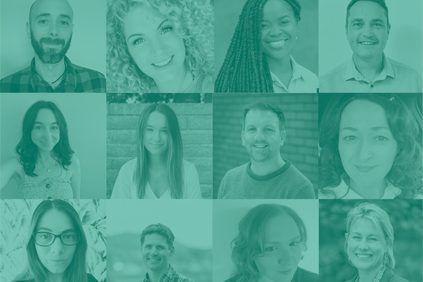As the user researcher in an agile multidisciplinary team for the service manual project, I’ve been leading the research to develop guidance for meeting the Digital Service Standard for Wales.
From the discovery phase through alpha, and now in beta, I’ve focused on an inclusive research approach. In this blog post, I’ll share the challenges I’ve faced in planning and conducting research with people who have access needs.
Why the service manual matters
You might think there’s a lot of best practice guidance out there for designing digital public services – and there is! But what’s missing is guidance tailored to the unique challenges of Wales, especially when it comes to the Welsh language and users with different access needs, and that’s where we come in.
As someone passionate about inclusive research – not just because it’s my job, but because it’s the right thing to do – I’m excited about leading by example at the Centre for Digital Public Services (CDPS). Our goal? Making sure our services work for everyone, ensuring true inclusivity.
Key areas of the service manual
Currently, we've divided content for the service manual into these themes and we're trying to understand how they work for users:
- researching your users and testing your service
- designing user-centred services
- delivering services in an agile way
- using the right technology
Our approach
Beta started in February 2024 and we kicked things off with researching users and testing services and have been working with the User Research in Wales Community. Together, we've developed content that dives into how to conduct user research with Welsh language users, why it's so important, and what to consider. With this co-designed content in hand, we're ready for the next stage: testing the prototype with users.
Research plan for testing accessibility
Our aim for this phase of user research is to enhance the usability, accessibility, and effectiveness of the service manual by gathering feedback from a diverse group of users, including both English and Welsh speakers and people with different access needs. In our initial planning, I aimed to include at least one Welsh language participant and one participant with access needs per research round, focusing heavily on accessibility testing to address gaps from our previous research.
My goal with accessibility testing is to understand how participants find information, assess the content’s structure, and identify any accessibility barriers. Some key questions we’re asking include:
- Are there accessibility issues that could prevent users with access needs from fully utilising the guidance?
- What can we do to improve the overall usability and accessibility of our guidance?
I try to have realistic expectations about recruiting people with access needs. From experience, I know that it may be difficult to find participants from the Welsh public sector or those in digital, data, and technology roles. I always aim to recruit relevant participants so that they have the relevant experience to provide feedback on content comprehension or usefulness but, when necessary, we test with proxy users (people who are not actual users of the service manual, or are in any of the aforementioned DDaT roles, but are close enough to have a good understanding of our users expectations, needs, pain points, etc). This testing focuses on accessibility testing of how participants find information, their journey through each task, the content’s structure, and what could impact their use of our content.
To ensure diverse and relevant insights, we’re recruiting participants with various access needs and levels of experience with technology. This includes people with:
- visual impairments (e.g., blindness, low vision)
- hearing impairments (e.g., deafness, partial hearing)
- motor impairments (e.g., difficulty walking, climbing stairs, lifting objects)
- cognitive impairments (e.g., learning disabilities, autism)
- speech impairments (e.g., difficulty speaking)
We’re also considering the assistive technologies they use, such as screen readers, magnifiers, hearing aids, cochlear implants, and voice recognition software.
Recommendation from our research ethics committee
With the research plan in place, I presented my research proposal to our research ethics committee, a vital part of our process at CDPS. They thoroughly reviewed my submission, and we had a productive meeting to discuss my plan and clarify any concerns.
During our discussion, we identified some challenges, like recruitment difficulties and the inability to conduct accessibility testing on Figma – a prototyping software. The ethics committee advised pushing the accessibility testing towards the end of beta and suggested involving the website team for a broader accessibility test. This way, we’d cover not just the service standard and guidance pages but the entire CDPS website, making our first actual accessibility testing with real users more comprehensive. Currently, we rely on the Digital Accessibility Centre’s audit report, which provides invaluable insights.
Next steps
I shared the committee's recommendations with my project team, and we decided to move forward with their advice. This means we’ll conduct accessibility testing in the actual staging environment (in private beta) and extend our research to other parts of our website – effectively hitting two birds with one stone.
By addressing these challenges and focusing on inclusivity, we're paving the way for truly accessible digital services. We're excited to continue this work and make a positive impact on the digital landscape in Wales.
Get involved
We’re reaching out to individuals working in the Welsh public sector, particularly those involved in user research, design, and agile delivery, to test our service manual and gain insights on how we can better support your needs.
If you’re interested in participating in our research, please email user.research@digitalpublicservices.gov.wales.
We look forward to hearing from you and will be in touch soon!
